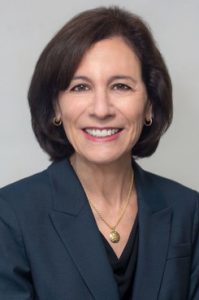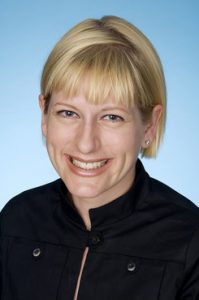Meet the New Boss: The Changing Faces of Big Law Leadership in 2020
Several firms in the Am Law 200 are welcoming new leaders this year. What should their firms and the rest of the industry expect?
January 02, 2020 at 05:00 AM
10 minute read
 Credit: William Brown
Credit: William Brown
Between a presidential election, the possibility of Brexit, a trade war with China and the looming risk of recession after more than 10 years of growth in the United States, 2020 is shaping up to be a year of uncertainty. For thousands of Big Law attorneys, there's also going to be change at the top of their firms.
Several firms in the Am Law 200 will welcome new leaders early next year, including Covington & Burling, Holland & Hart, Jenner & Block, Kelley Drye & Warren, Kirkland & Ellis, Proskauer Rose, Ropes & Gray and Kramer Levin Naftalis & Frankel. The firms brought in $8.5 billion altogether in 2018 and comprise some 6,400 lawyers.
Their business strategies, backgrounds and firm cultures differ, but their incoming leaders agree that stability and consistency, competition for clients and legal technology are among their main focuses. Several of the new leaders, including Julie Jones of Ropes & Gray and Katya Jestin of Jenner & Block, say they will put renewed emphasis on diversity, especially racial and ethnic diversity.
The incoming chairs and managing partners say keeping the trust of their colleagues is a high priority. Some, such as Dana Rosenfeld of Kelley Drye, intend to shun big, disruptive mergers in lieu of small-scale additions to the partnership and organic growth, and others, including Jones, aim to continue the successes of their predecessors.
The new leaders are also thinking about how to build client loyalty. Some, including Rosenfeld and Holland & Hart's Christopher Balch, say technologies that keep clients informed or reduce the amount of attorney time needed to resolve their legal matters will play a major role in that effort. Delivering victories in litigation and helping corporate clients avoid surprises is also key, says Randall Mehrberg, who is slated to take the reins at Jenner & Block with Jestin.
"We try very hard to go to our clients, who we view as our strategic partners, and say, 'We have an idea that may enhance your revenue,'" he says. "So, yes to secondments, yes to understanding our clients' business, yes to trying to proactively deliver value."
Not all new chairs were announced as this piece was coming together, and some couldn't be interviewed, but several of the incoming chairs and managing partners spoke with The American Lawyer about their areas of focus.
Julie Jones, Ropes & Gray
A Ropes & Gray lifer and accomplished private equity dealmaker, Julie Jones is slated to take the reins from longtime firm chair Brad Malt in January. Under Malt, the firm continued to grow its strength in traditional areas like asset management, private equity and life sciences, but diversified and grew beyond its Boston base. It now has 1,200 lawyers spread across six U.S. offices, one in London and four in Asia, and revenue over $1.7 billion.
 Julie Jones
Julie JonesJones was tapped to lead the firm nearly two years ago, and transition efforts have been underway since. Lately, she says, she has been on something of a listening tour, meeting with about 80 clients and relationship partners. She has heard widespread concern about the global economy, but knows it's out of her control.
"What is within my control, though … is being really tight with clients," she says. If the economy does falter, she says, the firm is well positioned because of its good relationships with private equity funds, which look for opportunities when valuations drop, and hedge funds, whose need for legal services can also be countercyclical.
"As long as there's credit liquidity, the [private equity] practice remains robust," Jones says. As for the asset management practice, she says, "choppy markets keeps hedge funds more active."
Jones says she also wants to get the word out about what Ropes & Gray has to offer and drum up more business. She thinks the firm's lawyers have the skill and energy to handle more. "I think it's OK to use a trumpet when you have a firm that's the quality of ours," she says.
Christopher Balch, Holland & Hart
Balch, a mergers and acquisitions and finance lawyer in Denver, says his focus will be to continue to execute on the firm's strategic plan. The firm will continue to focus on its high-performing practices and keep up its focus on technological innovation, he says, adding that its "Innovation Lab" of data scientists, engineers and software developers are creating tools that cut costs for clients in form-heavy areas of law, like patent, trademark and immigration law.
 Chris Balch, Chair of Holland & Hart in Denver.
Chris Balch, Chair of Holland & Hart in Denver.He is taking over for Elizabeth Sharrer as firm chair, with a four-year term. Sharrer, a commercial real estate partner, led Holland & Hart for six years. During that period, the firm's revenue rose a net of about 5%, and its lawyer head count see-sawed, but Balch says head count has stabilized and he expects revenue per lawyer and profits per equity partner to be up this year. In recent years, the firm has added nonequity tiers meant for rising partners and those nearing retirement.
One area of concern is the prospect of a recession, but Balch says Holland & Hart weathered the last economic slump better than many firms thanks to its diversified client base. As a member of the firm's management committee from 2009 to 2011, he saw the challenge up close. Partners "took it on the chin," he says, but the firm avoided associate layoffs.
"My goal, and the goal of the plan, is fundamentally to continue to offer and build upon what I view as our unmatched legal [strength] in the Mountain West," Balch says. That includes growing opportunistically, keeping up a commitment to innovation and preserving the firm's culture of teamwork, he says. In his eyes, leverage and profitability matter more than head count.
Dana Rosenfeld, Kelley, Drye & Warren
Rosenfeld, a Washington, D.C.-based veteran of the Federal Trade Commission who joined Kelley Drye from Bryan Cave in 2009, was selected by firm chair Jim Carr to take over the managing partner post in January from Lewis Rose, an advertising partner who has held the role since 2015. Rosenfeld has led the firm's privacy and information security practice since she joined, and has had stints on the compensation committee, executive committee and another committee that considers promotions to partner and counsel.
 Dana Rosenfeld
Dana RosenfeldRosenfeld says the firm has several women leaders and is well-positioned in terms of succession planning. Some of the firm's important practice groups, including litigation, are led by relatively young partners. (In the case of the litigation department, it's 49-year-old Michael Lynch). Among the issues Rosenfeld will steer the firm through are the relocation of its New York City office, the firm's largest, from 101 Park Avenue in Midtown to 3 World Trade downtown, which she says is slated to occur in late 2020. Other office real estate issues are next on the horizon.
Among Rosenfeld's priorities are innovation in areas like client service and communication, she says. She is also focused on how, exactly, Kelley Drye will grow. While a big merger isn't in the cards and the firm is focused on promoting attorneys through the ranks to equity partnership, she says it is open to hiring partners from outside who complement and fit in, in terms of skill set and culture.
"We're a very entrepreneurial firm," Rosenfeld says. "We are a mostly equity partner firm. So it is important to us to give our associates [experience] and help them learn the skills that they'll need to become successful partners in the long run."
Katya Jestin and Randall Merhberg, Jenner & Block
 Katya Jestin
Katya JestinWith the selection of Jestin and Mehrberg as co-managing partners, Jenner & Block is trying something new. The Chicago-based firm with offices in four U.S. cities has never before been led by co-managing partners, let alone one from outside Chicago. Mehrberg is in Chicago, but Jestin is in New York. They say the arrangement reflects the firm's growth, including its opening of a London office in 2015.
Jestin, a former federal prosecutor who co-chairs the firm's investigations, compliance and defense practice, and Mehrberg, the former chief legal officer of Exelon Corp. who co-chairs the firm's energy practice, say they have been working with outgoing managing partner Terrence Truax to prepare for the handoff. They have been in daily contact, Mehrberg says, and they are both ready to run with the ball when circumstances dictate.
 Randall Mehrberg
Randall MehrbergRevenue and head count at Jenner have fluctuated in recent years. Mehrberg says the challenge from a litigation perspective will be developing a steady stream of big-ticket matters, and that the firm is focused on adding value for corporate clients. Some firms refer to their bankruptcy practices as a hedge against uncertainty, but Mehrberg says Jenner's bankruptcy practice has been busy in the current period of economic expansion, working, for instance, on Puerto Rico's bankruptcy-style proceeding, in which it represents public-sector retirees. Jestin says the firm's litigators tend to get busy when the economy sours.
Jestin and Mehrberg say they're still developing a holistic strategic, including how long to give themselves to execute on it. ("Think three-year plan, not five-year plan," Mehrberg says.) But whatever they do will be consistent with the firm's values of client service, collaboration, diversity and inclusion, and commitment to public service and pro bono work, Jestin says.
Paul Schoeman and Howard Spilko, Kramer Levin Naftalis & Frankel
 Paul Schoeman
Paul SchoemanKramer Levin is also handing the reins to a litigation-corporate duo. Paul Schoeman, a top white-collar defense lawyer, and Howard Spilko, who has shepherded a variety of corporate clients through major transactions, were announced as the firm's co-managing partners in April. They stress the importance of building on predecessor Paul Pearlman's successes and describe how they will share responsibilities with a new chief operating officer.
Having hired former Milbank chief financial officer Mat Rosswood for the firm's COO role, Schoeman says things have been going well. Rosswood has brought "tremendous energy" to his role, Schoeman says, enabling him and Spilko to maintain their practices, and the plan going forward is to have more partners in the loop on firm management. The partners say Pearlman has left them in a good place, and they don't want to rock the boat.
 Howard Spilko
Howard Spilko"Our number one priority Jan. 1 is stability and making sure the firm's operations continue in the same way they have for years," Spilko says. "Priority number two … is to continue to grow revenue and to focus on our collaboration and business development activities."
Spilko says 2019 was a good year, pointing to the firm's work for Vici Properties, its bankruptcy work on high-profile cases including Forever 21 and Purdue Pharma, and the life sciences and patent work being done by partner Irena Royzman. The firm leaders also say they anticipate Barry Berke, a white-collar defense partner working on the House Democrats' impeachment efforts, will return to the firm in 2020 when his work there is done.
This content has been archived. It is available through our partners, LexisNexis® and Bloomberg Law.
To view this content, please continue to their sites.
Not a Lexis Subscriber?
Subscribe Now
Not a Bloomberg Law Subscriber?
Subscribe Now
NOT FOR REPRINT
© 2025 ALM Global, LLC, All Rights Reserved. Request academic re-use from www.copyright.com. All other uses, submit a request to [email protected]. For more information visit Asset & Logo Licensing.
You Might Like
View All
Law Firms Look to Gen Z for AI Skills, as 'Data Becomes the Oil of Legal'

Law Firms Expand Scope of Immigration Expertise Amid Blitz of Trump Orders
6 minute read
Losses Mount at Morris Manning, but Departing Ex-Chair Stays Bullish About His Old Firm's Future
5 minute read
Law Firms Mentioned
Trending Stories
- 1Uber Files RICO Suit Against Plaintiff-Side Firms Alleging Fraudulent Injury Claims
- 2The Law Firm Disrupted: Scrutinizing the Elephant More Than the Mouse
- 3Inherent Diminished Value Damages Unavailable to 3rd-Party Claimants, Court Says
- 4Pa. Defense Firm Sued by Client Over Ex-Eagles Player's $43.5M Med Mal Win
- 5Losses Mount at Morris Manning, but Departing Ex-Chair Stays Bullish About His Old Firm's Future
Who Got The Work
J. Brugh Lower of Gibbons has entered an appearance for industrial equipment supplier Devco Corporation in a pending trademark infringement lawsuit. The suit, accusing the defendant of selling knock-off Graco products, was filed Dec. 18 in New Jersey District Court by Rivkin Radler on behalf of Graco Inc. and Graco Minnesota. The case, assigned to U.S. District Judge Zahid N. Quraishi, is 3:24-cv-11294, Graco Inc. et al v. Devco Corporation.
Who Got The Work
Rebecca Maller-Stein and Kent A. Yalowitz of Arnold & Porter Kaye Scholer have entered their appearances for Hanaco Venture Capital and its executives, Lior Prosor and David Frankel, in a pending securities lawsuit. The action, filed on Dec. 24 in New York Southern District Court by Zell, Aron & Co. on behalf of Goldeneye Advisors, accuses the defendants of negligently and fraudulently managing the plaintiff's $1 million investment. The case, assigned to U.S. District Judge Vernon S. Broderick, is 1:24-cv-09918, Goldeneye Advisors, LLC v. Hanaco Venture Capital, Ltd. et al.
Who Got The Work
Attorneys from A&O Shearman has stepped in as defense counsel for Toronto-Dominion Bank and other defendants in a pending securities class action. The suit, filed Dec. 11 in New York Southern District Court by Bleichmar Fonti & Auld, accuses the defendants of concealing the bank's 'pervasive' deficiencies in regards to its compliance with the Bank Secrecy Act and the quality of its anti-money laundering controls. The case, assigned to U.S. District Judge Arun Subramanian, is 1:24-cv-09445, Gonzalez v. The Toronto-Dominion Bank et al.
Who Got The Work
Crown Castle International, a Pennsylvania company providing shared communications infrastructure, has turned to Luke D. Wolf of Gordon Rees Scully Mansukhani to fend off a pending breach-of-contract lawsuit. The court action, filed Nov. 25 in Michigan Eastern District Court by Hooper Hathaway PC on behalf of The Town Residences LLC, accuses Crown Castle of failing to transfer approximately $30,000 in utility payments from T-Mobile in breach of a roof-top lease and assignment agreement. The case, assigned to U.S. District Judge Susan K. Declercq, is 2:24-cv-13131, The Town Residences LLC v. T-Mobile US, Inc. et al.
Who Got The Work
Wilfred P. Coronato and Daniel M. Schwartz of McCarter & English have stepped in as defense counsel to Electrolux Home Products Inc. in a pending product liability lawsuit. The court action, filed Nov. 26 in New York Eastern District Court by Poulos Lopiccolo PC and Nagel Rice LLP on behalf of David Stern, alleges that the defendant's refrigerators’ drawers and shelving repeatedly break and fall apart within months after purchase. The case, assigned to U.S. District Judge Joan M. Azrack, is 2:24-cv-08204, Stern v. Electrolux Home Products, Inc.
Featured Firms
Law Offices of Gary Martin Hays & Associates, P.C.
(470) 294-1674
Law Offices of Mark E. Salomone
(857) 444-6468
Smith & Hassler
(713) 739-1250










